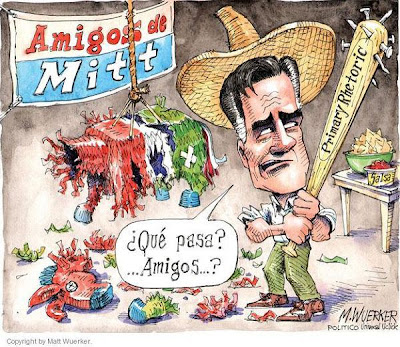 Texas Democratic Party State Chair Gilberto Hinojosa today responded to the Gov.
Texas Democratic Party State Chair Gilberto Hinojosa today responded to the Gov.
Perry's letter to U.S. Health and Human Services Secretary Kathleen Sebelius reaffirming his opposition to the Affordable Care Act, Social Security, Medicare and Medicaid.
Perry said in his letter, "I stand proudly with the growing chorus of governors who reject the Obama care power grab. Neither a 'state' exchange nor the expansion of Medicaid under this program would result in better 'patient protection' or in more 'affordable care.' They would only make Texas a mere appendage of the federal government when it comes to health care. "Hinojosa said in a statement posted on the TDP website:
Rick Perry is refusing $112 billion in health care money for uninsured Texans for three reasons. First, it doesn’t allow for kickbacks to his political donors. Second, he needs to feed his radical right wing base some red meat. And third … oh heck, he forgot the third.
Now we know why the Texas Republican platform calls for an end to teaching critical thinking skills. Any thinking makes it obvious that Perry’s bullheaded refusal of funding to expand Medicaid is wrong for Texas and deadly for Texans. Rick Perry is playing cute while a teenager never makes it to prom, a father never gets to walk his daughter down the aisle, children are dying from the lack of simple preventative care, and a mother won’t live to see her children to adulthood.
Perry’s decision will cost lives, and it will cost Texans and local governments much needed dollars in a tight economy.
Texans have to wonder how many lives and how much of your money Rick Perry is willing to sacrifice for his political career.
Texas is in 51st place among the 50 states – we are even behind Washington, DC – in delivery of health care to its citizens. But, Rick Perry is turning down these funds, because he believes that Texans know what’s best. Texans do, but their career Republican politicians don’t.
Texas Republicans, including David Dewhurst, Greg Abbott, and Joe Straus hide under the bed in fear of the Tea Party's irrational wrath if they speak up. Texans will continue to die far before their time while Rick Perry and the Republican Party pander to people who applaud the thought of watching people die in pain at the emergency room door.
Enough is enough. Politicians who call themselves “pro-life” while blithely turning down money to help the living need a swift kick to the rear end and a ticket out of the State of Texas. Help Texas Democrats get this message out.







